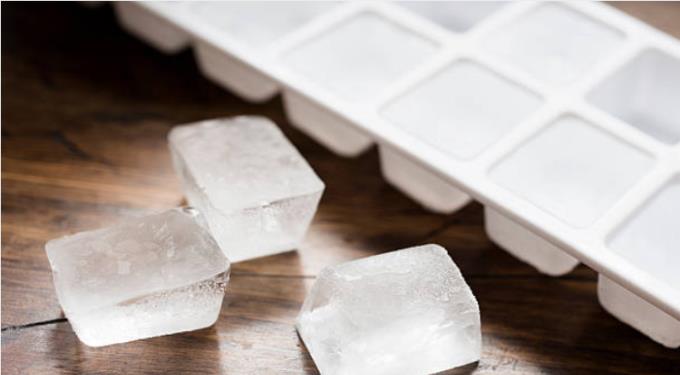During pregnancy, a craving for ice is common. Although eating ice can help keep the body moisturized, you shouldn't overdo it because it can cause many dangerous complications.
Gnawing and craving for certain foods are part of pregnancy. You may want to eat the foods you hate and hate the foods you like. Eating ice is one of the most common wishes in pregnant women. Although the cravings go away after birth, it can be a factor that worries you about your baby's safety at this stage.
Is it normal to like to eat ice during pregnancy?
During pregnancy, you may like to eat ice cold due to hormonal changes taking place inside the body. This is normal since most pregnant women experience this situation and it doesn't cause any negative effects. Compared with the cravings for exotic foods such as clay, mud and mortar ... the craving for ice is quite normal and safe for pregnant women. However, eating ice regularly can harm teeth and cause a sore throat.
Why do pregnant women like to eat ice?
The cravings for ice during pregnancy can be very intense. This may be due to:
1. Morning Sickness
Most pregnant women experience morning sickness in the first trimester of pregnancy. Morning sickness is caused by hormonal changes. In addition, this is also a sign that your baby is developing healthy inside your womb. Women who often vomit when eating or even just drink a glass of water can run right to the toilet, eating ice can be a remedy. The ice is odorless and easily digested, so the nausea should go away easily.

2. Iron deficiency
This is a serious problem. If you have a constant urge to eat ice or have a very strong craving for non-food items, the cause may be pica syndrome . This is a condition that makes you crave nourishing and non-food items like sand, glue, clay or chalk. Eating ice is not dangerous but it is related to the body's iron deficiency and needs to be reported to the doctor.
Besides, pica syndrome can lead to health problems during pregnancy. Iron deficiency can lead to anemia, so your doctor may recommend vitamin B12 supplements and dietary changes.
3. Feeling hot
Pregnant women face an increase in the volume of displaced blood, causing the body to become hotter than usual, and even feel very hot during pregnancy. In addition, during the third trimester, the increased metabolism can also make you feel uncomfortable. This will make you crave ice, especially in summer. Chewing ice can help "cool down" and keep the body from getting dehydrated. However, remember not to drink ice with carbonated or sugary drinks, as they are not good for you and your children.
4. Heartburn
Heartburn is also one of the most common symptoms in pregnant women, especially when it occurs later in pregnancy. During pregnancy, the placenta produces the hormone progesterone that relaxes the muscles of the uterus, but it also opens the valve between the stomach and esophagus, making it easier for stomach acids to back up. Eating ice can help cool your stomach and may help relieve heart attack.
5. Burning mouth syndrome
Burning mouth syndrome is a common condition in pregnant women. When you have this syndrome, you may feel pain, burning in your tongue, palate, gums, inside the cheeks or the back of your mouth. Eating ice can help relieve mouth pain, numbness, burning sensation in the lips, and discomfort in the cheeks. This syndrome is often difficult to diagnose, so there is no special treatment. If you are experiencing any of the above symptoms, please see your doctor for further advice.
Risks of eating too much ice during pregnancy
If you regularly eat ice cubes during pregnancy, be aware that this habit can lead to the following problems:
1. Oral Problems
Chewing on ice too much can damage your teeth, especially during pregnancy. Your enamel can be damaged, which can lead to cavities and make your teeth more sensitive to hot and cold foods. It's best to let the ice melt slowly in your mouth instead of chewing the blocks.
2. Malnutrition
If you keep sucking ice without eating other foods, it can negatively affect the health of you and your baby in the belly. The fetus may not be receiving all of the nutrients needed for growth and development.

3. Sore throat
A sore throat during pregnancy is a common symptom of pregnancy. However, if you keep the ice on regularly, this symptom will get worse.
4. Choking
This is one of the dangers that you should always be aware of, whether you are pregnant or not. If you are not careful and swallow a large stone, you can choke. Make sure the ice cubes you suck on are small and keep an eye out when eating.
Ice cravings usually go away after the baby is born, so if you find yourself experiencing these symptoms during pregnancy, you don't need to worry too much. However, if this habit exists for a long time, you should see your doctor because it is likely that you have iron deficiency or have a medical condition.













